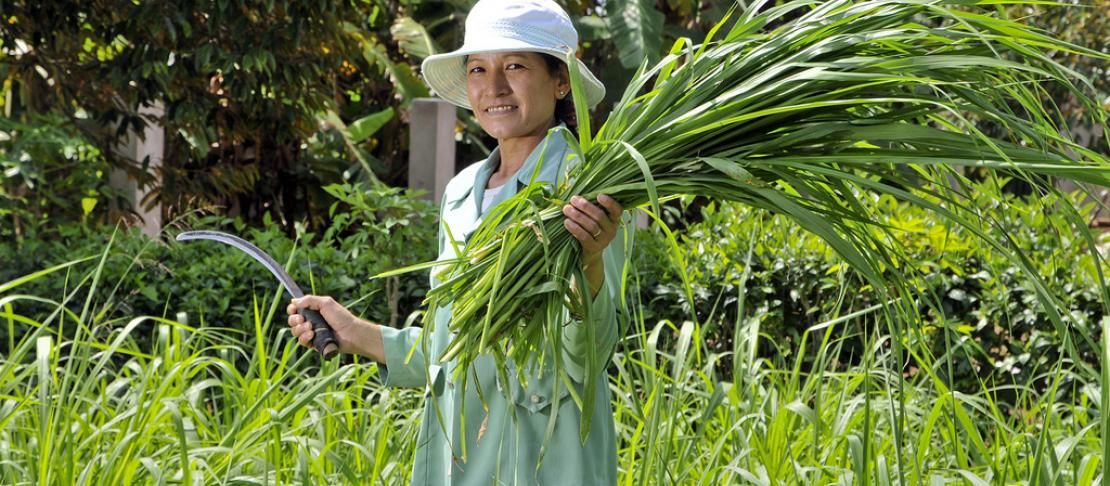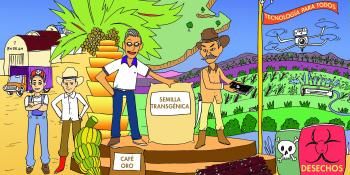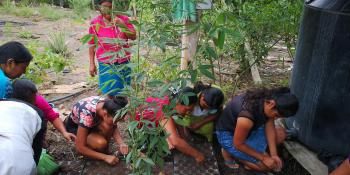Regional scenarios to guide policies, investments and institutional change

Summary
Scenarios are plausible stories about the different ways in which economic development might occur in the future and the role that agriculture may play, developed collectively based on information from participants with different, and sometimes opposing, experiences and views. CCAFS has promoted the scenario approach as a way of bringing these views and interests together to create credible stories of what might happen and what might be done about it. CCAFS regional scenarios are developed from diverse stakeholder knowledge and quantified through agricultural economic and land-use models. To date, over two hundred and forty organizations, representing government departments, regional economic bodies, CSOs and NGOs, farmer organizations, private sector investors, academia and the media have participated in scenario processes in the five CCAFS regions. CCAFS’s forward-looking and evidence based scenarios are used by decision-makers to guide policy and investment choices along impact pathways at regional, national and sub-national levels.
By the end of 2013, national and regional stakeholders in all five CCAFS regions were setting up processes which employed CCAFS scenarios to develop adaptation and mitigation policies. Examples include:
Vietnam: Scenarios were used to develop investment proposals for Climate-Smart Agriculture (CSA).
Pakistan: The Pakistan Planning Commission is using scenarios for its review of a 2030 vision for rural development under climate change.
ASEAN: Policy guidance meeting in 2014 to use the CCAFS scenarios for regional policies.
ECOWAS: Organising a close collaboration with CCAFS on policy guidance, a link that was first established through, and focuses heavily on, the West Africa regional scenarios process.
The scenarios approach now enjoys considerable support for its role in improving the policy environment and helping to shape regional and national priorities.
Key facts
CCAFS regional scenarios are developed with input from diverse stakeholder groups.
Scenarios are quantified using agricultural economic and land-use models.
Nearly 250 organizations have participated in scenarios development.
Various national, regional, and international organizations are using CCAFS scenarios for policy development and support.
Lessons: key elements of success
Focus on regional stakeholders and priority setting processes has ensured suitability of scenarios in specific regional contexts.
Related research outputs
Chaudhury, M., Vervoort, J., Kristjanson, P., Ericksen, P., & Ainslie, A. (2013). Participatory scenarios as a tool to link science and policy on food security under climate change in East Africa. Regional Environmental Change, 13(2), 389-398.
Kristjanson, P., Harvey, B., Van Epp, M., & Thornton, P. K. (2014). Social learning and sustainable development. Nature Climate Change, 4(1), 5-7.
Vermeulen, S. J., Challinor, A. J., Thornton, P. K., Campbell, B. M., Eriyagama, N., Vervoort, J. M., Kinyangi, J., Jarvis, A., Läderach, P., Ramirez-Villegas, J., Nicklin, K.J., Hawkins, E., & Smith, D. R. (2013). Addressing uncertainty in adaptation planning for agriculture. Proceedings of the National Academy of Sciences of the United States of America, 110(21), 8357-8362. doi: DOI 10.1073/pnas.1219441110
Vervoort, J. M., Thornton, P. K., Kristjanson, P., Förch, W., Ericksen, P. J., Kok, K., Ingram, J.S.I., Herrero, M., Palazzo, A., Helfgott, A. E. (2014). Challenges to scenario-guided adaptive action on food security under climate change. Global Environmental Change.
Vervoort JM, Palazzo A, Mason-D’Croz D, Ericksen PJ, Thornton PK, Kristjanson P, Förch W, Herrero M, Havlik P, Jost C, Rowlands H. (2013). The future of food security, environments and livelihoods in Eastern Africa: four socio-economic scenarios. CCAFS Working Paper No. 63. CGIAR Research Program on Climate Change, Agriculture and Food Security (CCAFS)
Vervoort J. 2013. Shared action on food and environments in East Africa. ECI Insights for Policy No. 1. University of Oxford, Oxford.
Vervoort, J. and P. Ericksen. 2012. No foresight, no food? Regional scenarios for Africa and South Asia. GFAR. Brief No. 03. The Futures of Agriculture: Future Studies.


